Thank you! Your Download Should Begin Automatically.
Email Address
Organisation
Phone Number
Industry Industry Travel & Tourism Smart City Education Workplaces Industry Agnostic Others


How to Write a Tourism Business Plan
by Bryan | Jul 10, 2023 | Destination Marketing

Starting a tourism business can be an exciting venture, but it’s vital to have a solid business plan in place. Your business plan will serve as a blueprint for your business, outlining your goals, strategies, and financial projections. Here’s a step-by-step guide on how to write a tourism business plan.
Step 1: Executive Summary
- Start with an executive summary, which provides a snapshot of your business.
- It should include your business name, location, and a brief description of the services you offer.
- This section should also highlight your unique selling proposition – what sets your tourism business apart from the competition.
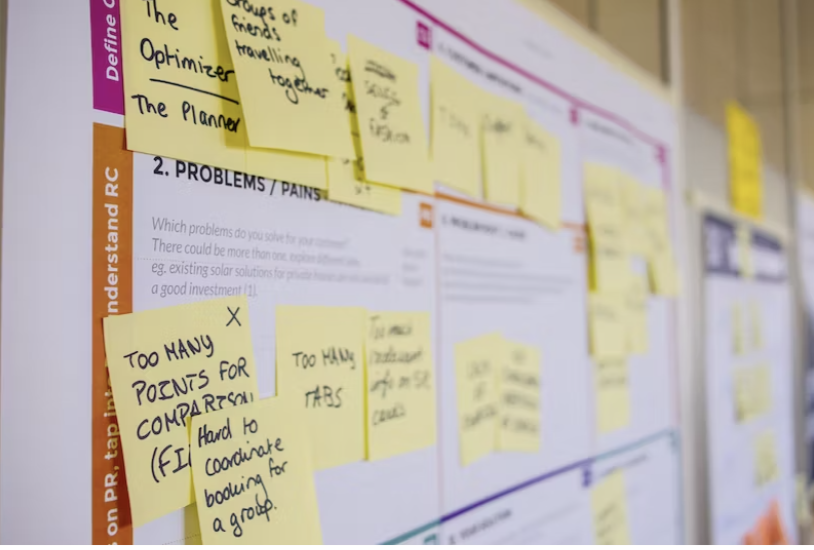
Step 2: Business Description
- Provide detailed information about your tourism business.
- Describe your target market, the types of tours or services you’ll offer, and your business structure (e.g., sole proprietorship, partnership, corporation).
- Also, discuss any partnerships with local businesses or organizations that will enhance your offerings.
Next up is the market analysis.
Step 3: Market Analysis
- This section requires research into the tourism industry in your area.
- Identify your competitors and analyze their strengths and weaknesses.
- Understand your target customers – their preferences, behaviors, and what they value in a tourism experience.
After understanding your market, it’s time to outline your organization and management structure.
Step 4: Organization and Management
Outline your team structure..
- Include the roles and responsibilities of each team member, and provide brief bios if possible.
- If you’re a sole proprietor, describe any outsourced roles (like accounting or marketing).

Step 5: Services or Products
- Detail the services or products your tourism business will offer.
- Whether you’re offering guided tours, travel planning, or other tourism-related services, make sure to describe each offering clearly.
- Explain the benefits of your services and how they meet the needs of your target market.
Finally, let’s talk numbers in your financial projections.
Step 6: Financial Projections
- This section should provide a clear picture of your business’s financial outlook.
- Include sales and revenue projections, a budget, a break-even analysis, and a projection of your cash flow.
- These figures will be crucial when seeking funding or investment for your tourism business.

Why do I need a business plan for my tourism business? A business plan helps you understand your business better, assists in securing funding, and serves as a roadmap for your business’s growth. A company overview is important in the travel and tourism industry. How long should my business plan be? The length of a business plan can vary significantly depending on the size and complexity of the business. However, typically, a business plan ranges from 20 to 50 pages. Who should write the business plan? As the successful business owner, you are the best person to write the business plan. However, you can also hire a professional business plan writer or use business plan software. How often should I update my business plan? It’s a good idea to update your business plan at least once a year or whenever significant changes occur in your business or industry. What if I’m starting a small tourism business and don’t have a team yet? That’s perfectly fine. In your organization and management section, simply focus on your role and any outsourced functions. Do I need to include all these sections in my business plan? Yes, each section plays a critical role in providing a comprehensive view of your business. However, the depth of detail in each section can vary based on your specific business. Can I use my business plan to secure funding? Absolutely. Investors and lenders will often request to see a business plan to understand the viability and potential of your business. A well-crafted business plan is crucial for the success of your tourism business. By following this guide, you’ll be well on your way to creating a comprehensive and effective business plan.
Best Practices when Writing a Tourism Business Plan Template
Writing a business plan for a tourism business involves several best practices that can increase the likelihood of your venture’s success. Here are some key points to consider:
1. Be Clear About Your Business Idea:
- Define your tourism business concept clearly.
- Specify the type of services you will provide, such as guided tours, travel planning, or accommodation booking.
2. Conduct Thorough Market Analysis:
- Identify your target audience and understand their needs and preferences.
- Analyze your competitors, their offerings, strengths, and weaknesses.
3. Create a Unique Selling Proposition (USP):
- Determine what sets your tourism business apart from competitors.
- Your USP could be unique tour packages, superior customer service, or partnerships with local businesses.
4. Detail Your Marketing Strategy:
- Develop a marketing and sales strategy to attract and retain customers.
- This could involve online advertising, social media promotion, collaborations with local businesses, or special offers for repeat customers.
5. Plan Your Operations:
- Outline how your business will operate on a day-to-day basis.
- Include details about logistics, staff requirements, equipment needed, and any regulatory compliance issues.
6. Develop a Financial Plan:
- Prepare a detailed financial plan, including revenue projections, budget, and break-even analysis.
- This section is crucial if you’re seeking investment or loans.
7. Review and Revise Regularly:
- A business plan should not be a static document. Review and update it regularly to keep it aligned with your current business situation and future goals.
Remember, your business plan is not just a document for potential investors or lenders; it’s also a roadmap for your business, guiding your decisions and strategies. By adhering to these best practices, you can create a robust business plan that sets your tourism business up for success.
- Company Updates
- Customer Spotlight
- Destination Marketing
- Digital Signage
- Employee Engagement
- Internal Communications
- New Features
- Newsletters
- Product Updates
- Touch Kiosks
- Visitor Information
Recent Posts
How hootboard can improve your community communication strategy, how information kiosks are revolutionizing customer experience in retail, product release update: simplified onboarding for hootboard kiosk users.
- Boosting Partner Profitability with HootBoard’s Innovative Features
- Product Update: Revolutionizing Memories with Our Selfie Print Feature
- Knowledge Base
- Setup a Demo
- Privacy Policy
- Terms of Use
Related Posts

by Pruthvi Raj | Destination Marketing
Effective communication is the foundation of any thriving community, yet it often presents challenges in today’s...

The retail landscape has evolved drastically, and information kiosks are at the forefront of this transformation. By...
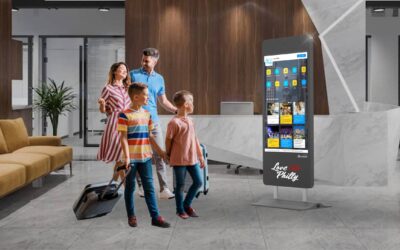
At HootBoard, we constantly strive to make your experience smoother and more intuitive. That’s why we’re excited to introduce our Enhanced Onboarding Experience—a streamlined way for administrators to get up and running with their kiosks quickly and efficiently.
JavaScript seems to be disabled in your browser. For the best experience on our site, be sure to turn on Javascript in your browser.
Newly Launched - AI Presentation Maker

Researched by Consultants from Top-Tier Management Companies
AI PPT Maker
Powerpoint Templates
PPT Bundles
Kpi Dashboard
Professional
Business Plans
Swot Analysis
Gantt Chart
Business Proposal
Marketing Plan
Project Management
Business Case
Business Model
Cyber Security
Business PPT
Digital Marketing
Digital Transformation
Human Resources
Product Management
Artificial Intelligence
Company Profile
Acknowledgement PPT
PPT Presentation
Reports Brochures
One Page Pitch
Interview PPT
All Categories
Tourism Business Plan Templates To Craft Your Success Trip Story!

Naveen Kumar
We live in a world where one man’s poison is another man’s meat. One person’s needs become an opportunity or business for another to meet that need and establish a business around it. The rise of food delivery apps epitomizes our opportunistic world; as busy lives demand convenience, these platforms turn hunger into profit while providing employment for drivers.
Tourism is one such industry that was born and growing on this fact. Travelers need to find comfort and avoid the headache of planning a trip, booking transport, finding stays, and researching local culture, making tourism a profitable business.
Tourism: Travel, Culture, Memories, And More!
Tourism is traveling for leisure, recreation, or business purposes to destinations outside one’s usual place of residence. It encompasses a wide range of experiences, including visiting historical sites, enjoying natural landscapes, local cuisines, cultural activities, participating in adventure sports, attending events, and more. Tourism contributes to economies (6.1% of global GDP in 2021), job creation (about 3% of the world’s total), and cultural exchange, often fostering understanding and appreciation between cultures and regions. It involves transportation, accommodation, entertainment, and hospitality, working together to provide travelers with enriching and enjoyable experiences.
Post-pandemic Challenges of the Tourism Industry
Prior to the Covid-19 pandemic, Travel & Tourism (including its direct, indirect, and induced impacts) accounted for 1 in 5 new jobs created across the world during 2014-2019 and 10.3% of all jobs (334 million) and 10.4% of global GDP ($10 trillion) in 2019.
The lockdowns and travel restrictions enforced globally upended the travel and tourism industry. According to the latest annual research by the World Travel & Tourism Council (WTTC), in 2022, the Travel & Tourism sector contributed 7.6% to global GDP – a 22% increase from 2021 but still 23% lower than in 2019. Despite a 7.9% annual increase, the number of travel and tourism jobs worldwide remains 11.4% lower in 2022 compared to 2019. Meanwhile, total global travel and tourism spending remained significantly below pre-pandemic levels in 2021. Following a drop to the lowest point in 2020 since 1989, international tourist arrivals worldwide rose in 2021 yet fell far short of the nearly 1.5 billion peaks reported in 2019.
PROBLEMS THAT PLAGUE TOURISM
The tourism industry grapples with challenges like uncertain travel restrictions, waning consumer confidence, and fluctuating policies. Traveler safety, digitalization, and rethinking operational models further compound the hurdles. Amid this landscape, a robust tourism business plan offers a strategic compass.
Tourism Business Plan Templates
A business plan addresses safety concerns, enhances experiences, and embraces digital strategies to cater to cautious travelers. It fosters resilience and adaptability with strategies to capitalize on local markets and identify emerging trends. Amid the evolving dynamics of the post-pandemic tourism landscape, a well-crafted tourism business plan is not just a necessity – it's a lifeline. Our expert-designed tourism business plan templates offer a strategic roadmap to navigate challenges that have reshaped the industry. These content-ready business plan PPT Slides give the much-needed and comprehensive framework for adapting to the new normal. The 100% customizable nature of these templates empowers tourism companies to rebuild, redefine, and reignite their success.
Without ado, let's explore these tourism business plan templates to strategize the next big move for your tourism company.
1. Investor Business Plan Template For Travel And Tourism Company
This presentation layout is a roadmap to transform your travel and tourism aspirations into a profitable business venture. Packed with strategic brilliance, it unveils a dazzling display of key partners and value propositions that shine brighter than the sunsets you'll witness. Tourism firms, curious explorers, and entrepreneurs can map customer relationships, segments, marketing channels, essential resources, and revenue systems using this PPT Design to convince potential investors and strategic partners. Download it now!
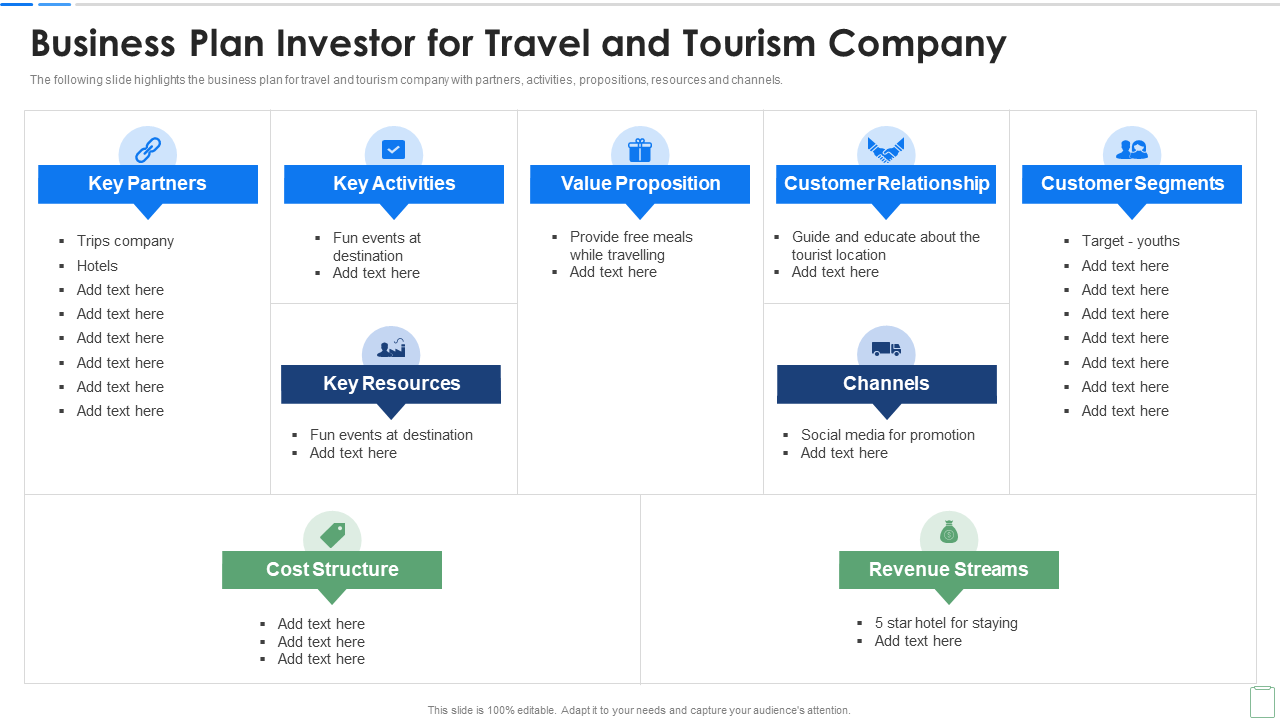
Download this template
2. Tourism Business Plan PowerPoint Presentation Template
Elevate your trade strategy with our dynamic PPT Layout that will guide you through the intricacies of tourism business planning. This expert-designed framework is a home for an intuitive table that outlines key focus areas, such as connectivity, human resources, product/services, and marketing. Within each domain, it provides a comprehensive roadmap for short-term, mid-term, and long-term tasks, ensuring your business journey toward sustainable success feels like a breeze. Perfect for seasoned professionals and budding entrepreneurs alike, this template empowers users to chart a strategic course, align teams, and present a compelling vision to stakeholders. Get it now!
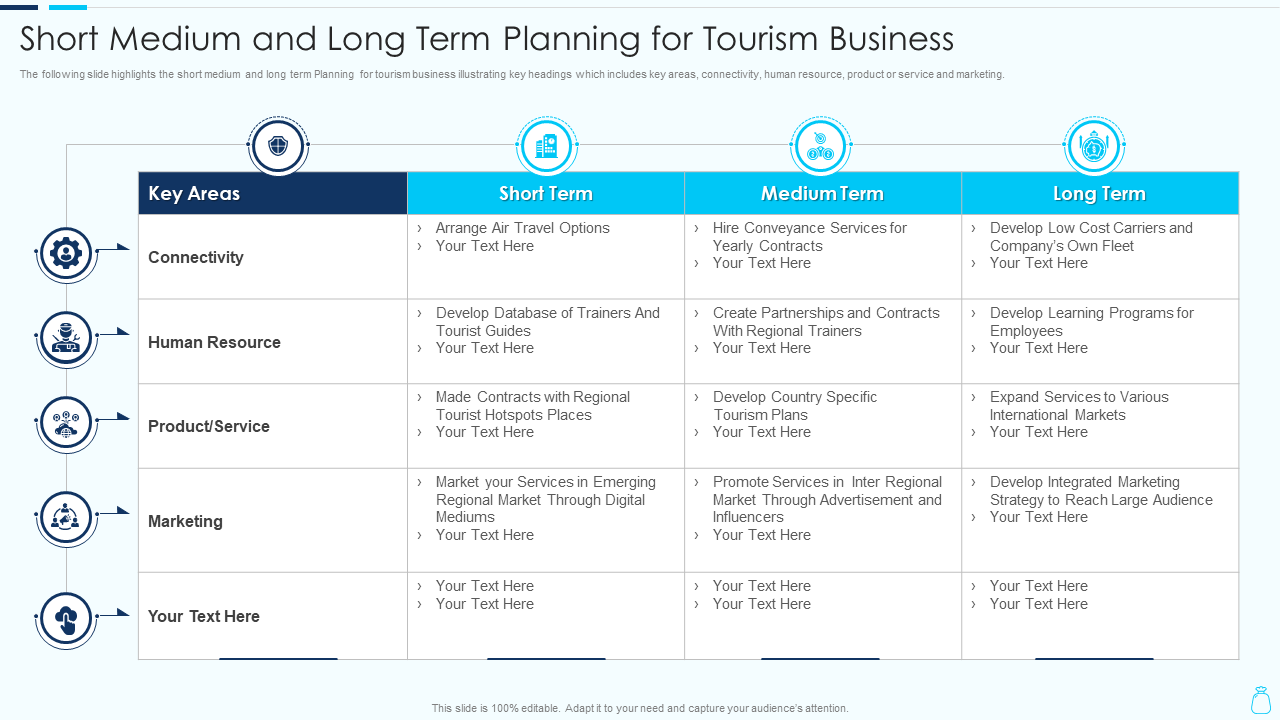
3. Tourism Business Planning and Strategy Presentation Template
Transform your tourism business vision into reality with our exquisite business planning PPT Layout that offers a neat canvas for painting a compelling narrative of your tourism venture. Designed with finesse, it has a pristine white backdrop to showcase key components and sub-components of your business plan, from visitor segments to revenue streams. Entrepreneurs, executives, and industry enthusiasts can use this presentation template to impress investors, engage stakeholders, and collaborate with partners. Elevate your business discussions with impactful visuals, and set sail towards an exciting and prosperous journey in the world of tourism with this PowerPoint Slide.
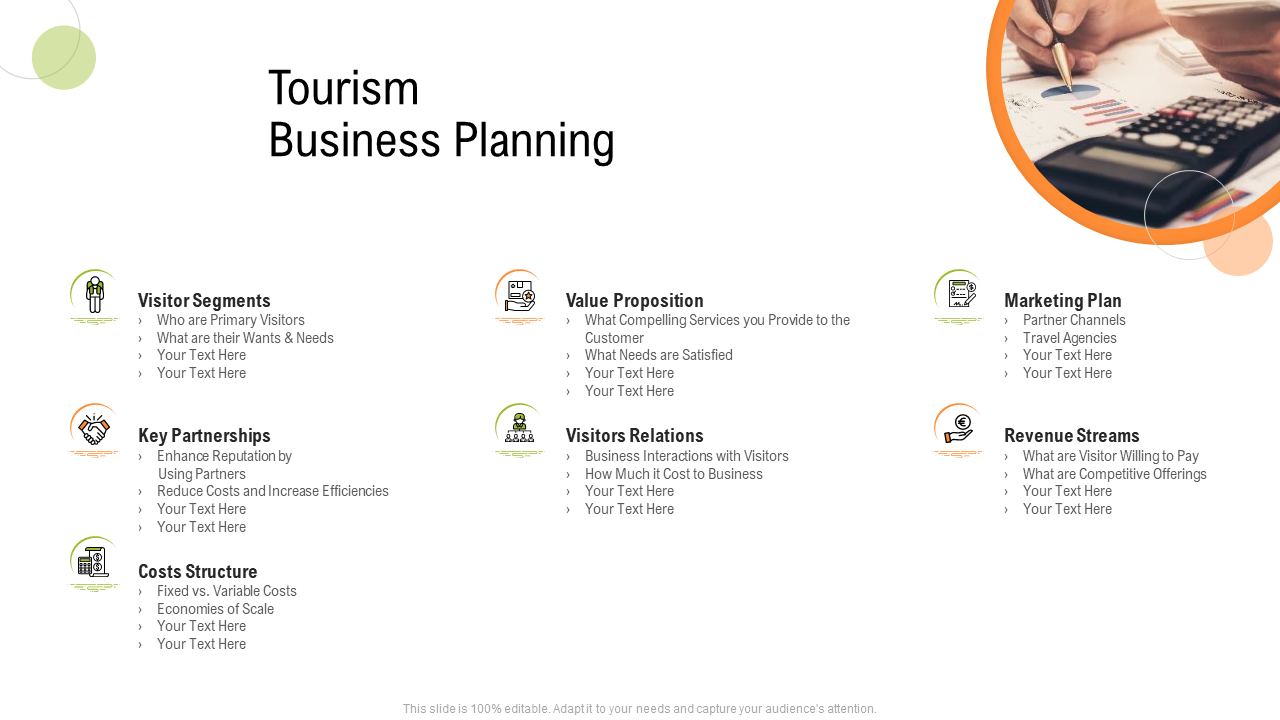
Journeys That Enriches Lives and Economies!
From adventure seekers traversing remote landscapes to culture enthusiasts immersing themselves in vibrant traditions and from sun-soaked beachcombers to intrepid explorers of bustling urban centers – the world of tourism is as diverse as the travelers it embraces. While post-pandemic challenges have reshaped how we travel, a well-crafted tourism business plan guides these diverse endeavors. Crafting this blueprint becomes pivotal as companies seek to navigate uncertainty, revive momentum, and thrive. That is where our research-based tourism business plan templates stand ready.
These PPT Designs provide businesses with the tools needed to navigate uncertainty, tap into emerging trends, and create unforgettable experiences for travelers. As your tourism company charts a new course, let these PowerPoint Slides be your steadfast companion, paving the way for resilience, innovation, and growth.
Download these tourism business plan templates to see the future with foresight, strategy, and confidence – ensuring your place in the vibrant tapestry of global tourism.
FAQs on Tourism Business Plan
How do you plan a tourism business.
Planning a tourism business involves a strategic and comprehensive approach to ensure its success.
- Start by conducting thorough market research to understand the target audience, competition, and trends.
- Define your unique value proposition.
- Develop a detailed business plan outlining your goals, strategies, financial projections, and marketing efforts.
- Establish partnerships with local suppliers, accommodation providers, and attractions.
- Build a strong online presence through a user-friendly website and social media.
- Implement effective marketing campaigns and adapt to feedback and market conditions.
How do I start a tourism business from scratch?
Starting a tourism business from scratch requires careful planning and execution. You can follow these steps:
- Begin by identifying your niche within the tourism industry, whether it's adventure travel, cultural tours, or eco-tourism.
- Conduct thorough market research to understand your target audience and competition.
- Create a detailed business plan outlining your business structure, offerings, marketing strategies, and financial projections.
- Secure necessary permits, licenses, and insurance.
- Establish partnerships with local vendors and suppliers.
- Develop a professional online presence.
- Promote your business through effective marketing and networking efforts.
- Assess and adapt your offerings based on customer feedback and market trends.
What are the seven steps in the tourism planning process?
The tourism planning process involves the following seven steps:
- Research and Analysis: Conduct thorough research to understand the destination, target market, and competition. Analyze trends, opportunities, and challenges.
- Market Segmentation and Targeting: Identify and segment your target audience based on demographics, interests, and travel preferences. Tailor your offerings to meet their needs.
- Destination Development: Create appealing and unique tourism products and experiences that showcase the destination's attractions, culture, and heritage.
- Infrastructure and Services: Develop or procure necessary infrastructure such as transportation, accommodation, and amenities to support tourism activities and enhance visitor experience.
- Marketing and Promotion: Use effective marketing strategies to promote your destination or tourism business. Use a mix of online and offline channels to reach your target audience.
- Implementation and Management: Execute your plans, manage operations, and ensure the quality of services. Establish partnerships with stakeholders and monitor the visitor experience.
- Evaluation and Monitoring: Assess the success of your tourism initiatives through data collection, feedback analysis, and performance metrics. Make necessary adjustments to improve and enhance the customer’s engagement with your business, as travel itself is all about experience.
Related posts:
- The Quick 10-Point Guide That Will Help You Ace a Remotely-Presented Investor Pitch
- Must-Have SAAS Business Plan Templates with Samples and Examples
- Top 10 Travel Agency Business Plan Templates with Examples and Samples (Editable Word Doc, Excel and PDF Included)
- Top 10 Resort Business Plan Templates with Examples and Samples (Editable Word Doc, Excel and PDF Included)
Liked this blog? Please recommend us

Top 5 Travel and Tourism Industry Brochures (Free PPT& PDF)
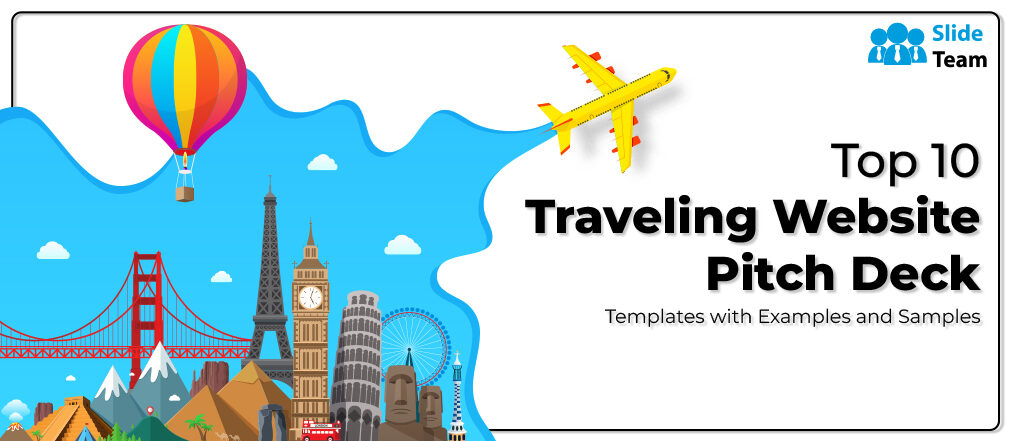
Top 10 Traveling Website Pitch Deck Templates with Examples and Samples
![example of a tourism business plan Top 10 Travel Plan Templates to Achieve Flawless Coordination [Free PDF Attached]](https://www.slideteam.net/wp/wp-content/uploads/2022/05/Top-10-Travel-Plan-Templates_1-1013x441.png)
Top 10 Travel Plan Templates to Achieve Flawless Coordination [Free PDF Attached]
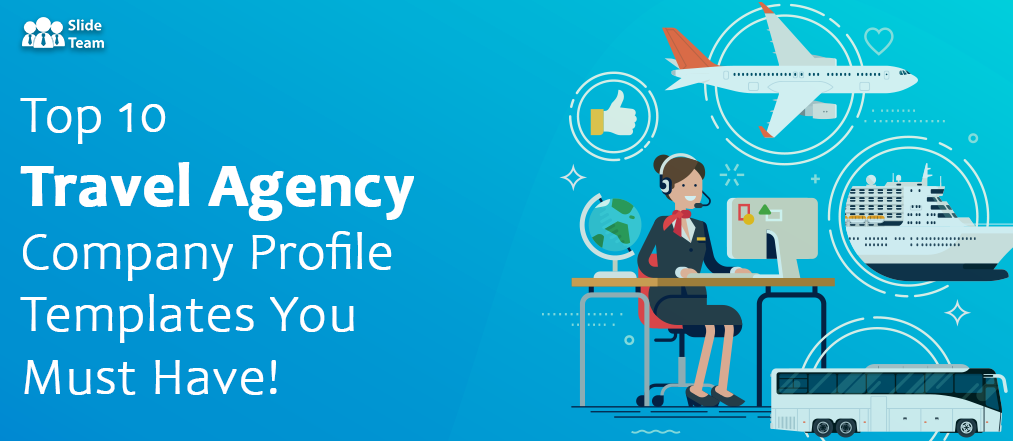
Top 10 Travel Agency Company Profile Templates You Must Have! Download Free PPT and PDF
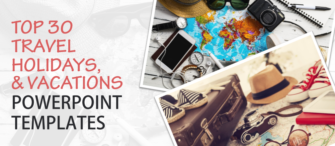
Top 30 Travel, Holiday and Vacation PowerPoint Templates to Discover the World Around You!
![example of a tourism business plan [Updated 2023] Top 13 Travel Brochure Templates to Promise Your Clients a Memorable Trip](https://www.slideteam.net/wp/wp-content/uploads/2021/10/with-logo-1-2-1013x441.jpg)
[Updated 2023] Top 13 Travel Brochure Templates to Promise Your Clients a Memorable Trip
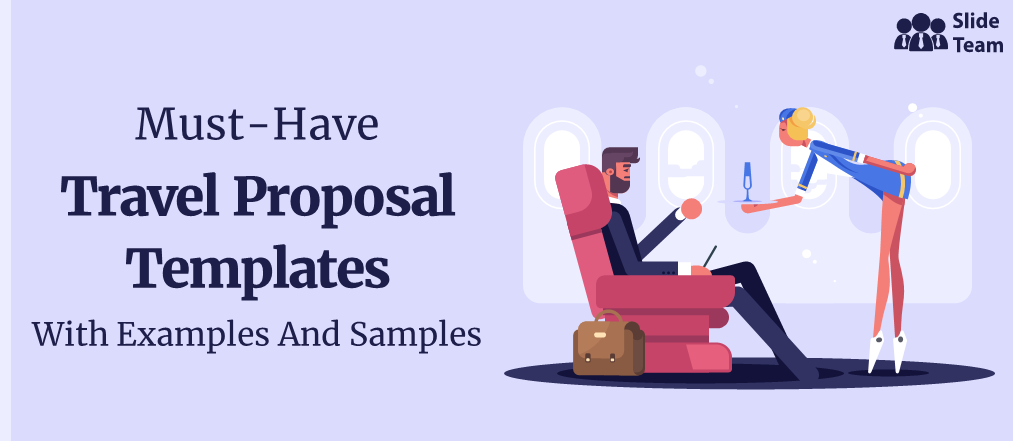
Must-Have Travel Proposal Templates with Examples and Samples
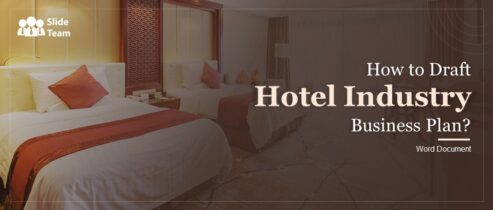
How to Draft Hotel Industry Business Plan? Word Document
This form is protected by reCAPTCHA - the Google Privacy Policy and Terms of Service apply.

🌍 Upmetrics is now available in
- Sample Business Plans
Tour Operator Business Plan

Are you a travel enthusiast making itineraries for your friends & families? Well, if yes, then you are going to be an excellent tour operator. But for a successful business out of a hobby, a proper plan is needed.
Need help writing a business plan for your tour operator business? You’re at the right place. Our tour operator business plan template will help you get started.

Free Business Plan Template
Download our free tour operator business plan template now and pave the way to success. Let’s turn your vision into an actionable strategy!
- Fill in the blanks – Outline
- Financial Tables
How to Write A Tour Operator Business Plan?
Writing a tour operator business plan is a crucial step toward the success of your business. Here are the key steps to consider when writing a business plan:
1. Executive Summary
An executive summary is the first section planned to offer an overview of the entire business plan. However, it is written after the entire business plan is ready and summarizes each section of your plan.
Here are a few key components to include in your executive summary:
- Market Opportunity: Summarize your market research, including market size, growth potential, and marketing trends. Highlight the opportunities in the market and how your business will fit in to fill the gap.
- Marketing & Sales Strategies: Outline your sales and marketing strategies—what marketing platforms you use, how you plan on acquiring customers, etc.
- Financial Highlights: Briefly summarize your financial projections for the initial years of business operations. Include any capital or investment requirements, associated startup costs, projected revenues, and profit forecasts.
- Call to Action: Summarize your executive summary section with a clear CTA, for example, inviting angel investors to discuss the potential business investment.
Ensure your executive summary is clear, concise, easy to understand, and jargon-free.
Say goodbye to boring templates
Build your business plan faster and easier with AI
Plans starting from $7/month

2. Business Overview
The business overview section of your business plan offers detailed information about your company. The details you add will depend on how important they are to your business. Yet, business name, location, business history, and future goals are some of the foundational elements you must consider adding to this section:
Describe what kind of tour operator company you run and the name of it. You may specialize in one of the following tour operator businesses:
- Inbound operators
- Outbound operators
- Domestic operators
- Adventure tour operators
- Group tour operators
- Luxury tour operators
- Online travel agencies
- Describe the legal structure of your tour operator company, whether it is a sole proprietorship, LLC, partnership, or others.
- Explain where your business is located and why you selected the place.
- Owners: List the names of your tour operator business’s founders or owners. Describe what shares they own and their responsibilities for efficiently managing the business.
- Mission Statement: Summarize your business’ objective, core principles, and values in your mission statement. This statement needs to be memorable, clear, and brief.
- Future Goals: It’s crucial to convey your aspirations and vision. Mention your short-term and long-term goals; they can be specific targets for revenue, market share, or expanding your services.
This section should provide a thorough understanding of your business, its history, and its future plans. Keep this section engaging, precise, and to the point.
3. Market Analysis
The market analysis section of your business plan should offer a thorough understanding of the industry with the target market, competitors, and growth opportunities. You should include the following components in this section.
- Competitive Analysis: Identify and analyze your direct and indirect competitors. Identify their strengths and weaknesses, and describe what differentiates your tour operator services from them. Point out how you have a competitive edge in the market.
- Regulatory Environment: List regulations and licensing requirements that may affect your tour operator company, such as business registration & licensing, transportation regulation, consumer protection laws, employment laws, consumer protection laws, etc.
Here are a few tips for writing the market analysis section of your tour guide business plan:
- Conduct market research, industry reports, and surveys to gather data.
- Provide specific and detailed information whenever possible.
- Illustrate your points with charts and graphs.
- Write your business plan keeping your target audience in mind.
4. Products And Services
The product and services section should describe the specific services and products that will be offered to customers. To write this section should include the following:
- Itinerary planning
- Accommodation booking
- Guided tours
- Activities & excursions
- Travel documentation & visa assistance
- Travel Insurance
- Destination management services
- Additional Services: Mention if your tour operator company offers any additional services. You may include services like visa assistance, travel insurance, local transportation, etc.
In short, this section of your tour operator plan must be informative, precise, and client-focused. By providing a clear and compelling description of your offerings, you can help potential investors and readers understand the value of your business.
5. Sales And Marketing Strategies
Writing the sales and marketing strategies section means a list of strategies you will use to attract and retain your clients. Here are some key elements to include in your sales & marketing plan:
- Pricing Strategy: Describe your pricing strategy—how you plan to price your services and stay competitive in the local market. You can mention any discounts you plan on offering to attract new customers.
- Marketing Strategies: Discuss your marketing strategies to market your services. You may include some of these marketing strategies in your business plan—social media marketing, Google ads, email marketing, content marketing, and print marketing.
- Sales Strategies: Outline the strategies you’ll implement to maximize your sales. Your sales strategies may include direct sales calls, partnering with other businesses, offering referral programs, etc.
- Customer Retention: Describe your customer retention strategies and how you plan to execute them. For instance, introducing loyalty programs, discounts & offers, personalized service, etc.
Overall, this section of your tour company business plan should focus on customer acquisition and retention.
Have a specific, realistic, and data-driven approach while planning sales and marketing strategies for your tour operator business, and be prepared to adapt or make strategic changes in your strategies based on feedback and results.
6. Operations Plan
The operations plan section of your business plan should outline the processes and procedures involved in your business operations, such as staffing requirements and operational processes. Here are a few components to add to your operations plan:
- Staffing & Training: Mention your business’s staffing requirements, including the number of employees or other staff needed. Include their qualifications, the training required, and the duties they will perform.
- Operational Process: Outline the processes and procedures you will use to run your tour operator business. Your operational processes may include tour planning & development, marketing & sales, reservation & booking management, operations & logistics, etc.
Adding these components to your operations plan will help you lay out your business operations, which will eventually help you manage your business effectively.
7. Management Team
The management team section provides an overview of your tour operator business’s management team. This section should provide a detailed description of each manager’s experience and qualifications, as well as their responsibilities and roles.
- Founders/CEO: Mention the founders and CEO of your tour operator company, and describe their roles and responsibilities in successfully running the business.
This section should describe the key personnel for your tour operator services, highlighting how you have the perfect team to succeed.
8. Financial Plan
Your financial plan section should provide a summary of your business’s financial projections for the first few years. Here are some key elements to include in your financial plan:
- Profit & loss statement: Describe details such as projected revenue, operational costs, and service costs in your projected profit and loss statement . Make sure to include your business’s expected net profit or loss.
- Cash flow statement: The cash flow for the first few years of your operation should be estimated and described in this section. This may include billing invoices, payment receipts, loan payments, and any other cash flow statements.
- Balance Sheet: Create a projected balance sheet documenting your tour operator business’s assets, liabilities, and equity.
- Financing Needs: Calculate costs associated with starting a tour operator business, and estimate your financing needs and how much capital you need to raise to operate your business. Be specific about your short-term and long-term financing requirements, such as investment capital or loans.
Be realistic with your financial projections, and make sure you offer relevant information and evidence to support your estimates.
9. Appendix
The appendix section of your plan should include any additional information supporting your business plan’s main content, such as market research, legal documentation, financial statements, and other relevant information.
- Add a table of contents for the appendix section to help readers easily find specific information or sections.
- In addition to your financial statements, provide additional financial documents like tax returns, a list of assets within the business, credit history, and more. These statements must be the latest and offer financial projections for at least the first three or five years of business operations.
- Provide data derived from market research, including stats about the industry, user demographics, and industry trends.
- Include any legal documents such as permits, licenses, and contracts.
- Include any additional documentation related to your business plan, such as product brochures, marketing materials, operational procedures, etc.
Use clear headings and labels for each section of the appendix so that readers can easily find the necessary information.
Remember, the appendix section of your tour operator business plan should only include relevant and important information supporting your plan’s main content.
The Quickest Way to turn a Business Idea into a Business Plan
Fill-in-the-blanks and automatic financials make it easy.
This sample tour operator business plan will provide an idea for writing a successful tour operator plan, including all the essential components of your business.
After this, if you still need clarification about writing an investment-ready business plan to impress your audience, download our tour operator business plan pdf .
Related Posts
Travel Agency Business Plan
RV Park Business Plan
Steps to Writing Business Plan
Best AI tools for Startup
10 Essential Components of a Business Plan
Business Plan Cover Page Guide
Frequently Asked Questions
Why do you need a tour operator business plan.
A business plan is an essential tool for anyone looking to start or run a successful tour operator business. It helps to get clarity in your business, secures funding, and identifies potential challenges while starting and growing your business.
Overall, a well-written plan can help you make informed decisions, which can contribute to the long-term success of your tour operator company.

How to get funding for your tour operator business?
There are several ways to get funding for your tour operator business, but self-funding is one of the most efficient and speedy funding options. Other options for funding are:
- Bank loan – You may apply for a loan in government or private banks.
- Small Business Administration (SBA) loan – SBA loans and schemes are available at affordable interest rates, so check the eligibility criteria before applying for it.
- Crowdfunding – The process of supporting a project or business by getting a lot of people to invest in your business, usually online.
- Angel investors – Getting funds from angel investors is one of the most sought startup options.
Apart from all these options, there are small business grants available, check for the same in your location and you can apply for it.
Where to find business plan writers for your tour operator business?
There are many business plan writers available, but no one knows your business and ideas better than you, so we recommend you write your tour operator business plan and outline your vision as you have in your mind.
What is the easiest way to write your tour operator business plan?
A lot of research is necessary for writing a business plan, but you can write your plan most efficiently with the help of any tour operator business plan example and edit it as per your need. You can also quickly finish your plan in just a few hours or less with the help of our business plan software .
How do I write a good market analysis in a tour operator business plan?
Market analysis is one of the key components of your business plan that requires deep research and a thorough understanding of your industry. We can categorize the process of writing a good market analysis section into the following steps:
- Stating the objective of your market analysis—e.g., investor funding.
- Industry study—market size, growth potential, market trends, etc.
- Identifying target market—based on user behavior and demographics.
- Analyzing direct and indirect competitors.
- Calculating market share—understanding TAM, SAM, and SOM.
- Knowing regulations and restrictions
- Organizing data and writing the first draft.
Writing a marketing analysis section can be overwhelming, but using ChatGPT for market research can make things easier.
About the Author
Upmetrics Team
Upmetrics is the #1 business planning software that helps entrepreneurs and business owners create investment-ready business plans using AI. We regularly share business planning insights on our blog. Check out the Upmetrics blog for such interesting reads. Read more

Turn your business idea into a solid business plan
Explore Plan Builder
Plan your business in the shortest time possible
No Risk – Cancel at Any Time – 15 Day Money Back Guarantee

Create a great Business Plan with great price.
- 400+ Business plan templates & examples
- AI Assistance & step by step guidance
- 4.8 Star rating on Trustpilot
Streamline your business planning process with Upmetrics .

Don't bother with copy and paste.
Get this complete sample business plan as a free text document.
Travel Tour Agency Business Plan
Start your own travel tour agency business plan
Sephats Tours
Executive summary executive summary is a brief introduction to your business plan. it describes your business, the problem that it solves, your target market, and financial highlights.">, opportunity.
The tourism industry has undergone rapid growth of unsurpassed nature over the last several decades. This has mainly been due to the advent of a ‘borderless’ world and increased information dissemination about the majestic sceneries throughout the world, with the southern African region being no exception.
Sephats Tours intends to provide individual and group travel to leisure clients. Services and products provided by Sephats will initially include pre-arranged tours, custom packages according to clients specifications, travel consultation, and as time progresses making reservations for lodging amongst other related services. Sephats Tours seeks to differentiate itself as the premier adventure travel company in the greater Gaborone (Botswana) area.
We will be focusing on those foreign tourists seeking leisure travel and excursions whilst on vacation in Botswana, with the intention of letting them see and appreciate the numerous attractions in our country. Though we realize that the majority of our tourists come from South Africa we shall be mainly targeting those from Europe and the Americas who often do not have transport or adequate knowledge about the country, unlike their South African counterparts who often do. Hence we shall be mainly targeting those who are not that mobile but wanting to see as many sites as possible. These people often do not want to waste their money on hiring vehicles to move about by themselves, but instead want to be escorted around places of interest by a reliable source. Hence the need to professionally market ourselves and the services we provide, offering a service of uncompromised nature.
Competition
We have identified competing companies, some firmly established, that fill the same needs as Sephats Tours. We intend to market ourselves in such a way that with time competitor customers will choose our service over competitors’ on the basis of our higher quality and informative excursions.
Sephats Tours is poised to take advantage of this growth and moderate competition in the city travel portion of the industry, with a dedicated and experienced staff, excellent networking, and effective management and marketing. Sephats Tours intends to provide travel and adventure packages to tourists primarily in the Southern region, but also the whole of Botswana. Services and products provided by Sephats will initially include pre-arranged tours, custom packages according to clients specifications, travel consultation, and as time progresses making reservations for lodging amongst other related services. Sephats Tours seeks to differentiate itself as the premier adventure mobile operator in the greater Gaborone area.
Expectations
We foresee a slow initial growth in sales, as we strive to ensure we are known on the market, though operating expenses will be relatively high, and a bump in our sales and revenue generation as we spread our services during expansion.
Collection days are very important. We do not want to let our average collection days get above the client’s actual subscription period under any circumstances. This could cause a serious problem with cash flow, because our working capital situation is chronically tight. However, we recognize that we cannot control this factor easily, because of the relationship we wish to create with our clients.
Financial Highlights by Year
Financing needed.
We wil have 2 investors that will contribute:
investor 1 – P100,000
investor 2 – P102.000
This will cover all our necessary expenses until we are able to start making a net profit
Problem & Solution
Problem worth solving.
The tourism industry has undergone rapid growth of unsurpassed nature over the last several decades. This has mainly been due to the advent of a ‘borderless’ world and increased information dissemination about the majestic sceneries throughout the world, with the southern African region being no exception. Customers want to travel, to see the world. They are in need of a company where they can enjoy the sites and the luxuries without having to pay a huge price.
Our Solution
Sephats Tours intends to provide individual and group travel to leisure clients. Services and products provided by Sephats will initially include pre-arranged tours, custom packages according to clients specifications, travel consultation, and as time progresses making reservations for lodging amongst other related services. Sephats Tours seeks to differentiate itself as the premier adventure travel company in the greater Gaborone area. Customers will think we are well worth the expense
As it grows it will take on people and expand into related markets and services. It will also look for additional leverage by establishing relationships and representations with appropriate strategic allies.
Target Market
Market size & segments.
We will be focusing on those foreign tourists seeking leisure travel and excursions whilst on vacation in Botswana, with the intention of letting them see and appreciate the numerous attractions in our country. Though we realize that the majority of our tourists come from South Africa we shall be mainly targeting those from Europe and the Americas who often do not have transport or adequate knowledge about the country, unlike their South African counterparts who often do. Hence we shall be mainly targeting those who are not that mobile but wanting to see as many sites as possible. These people often do not want to waste their money on hiring vehicles to move about by themselves, but instead want to be escorted around places of interest by a reliable source. Hence the need to professionally market ourselves and the services we provide, offering a service of uncompromised nature. />Our marketing strategy will be based mainly on making the right service(s) available to the right target customer. We will ensure that our services’ prices take into consideration organizations’ and peoples’ budgets, and that these people know that we exist, appreciate the value of our services, and how to contact us. The marketing will convey the sense of quality in every picture, every promotion, and every publication. Our intension will be to target those individuals and groups looking for leisure activities and places to visit. We realize the need to focus our marketing message and our service offerings. We need to develop our message, communicate it, and make good on it. The decision to establish strategic alliances with several hotels, lodges and travel agencies is aimed at tapping our target market effectively and efficiently.
Current Alternatives
We have identified competing companies, some firmly established, that fill the same needs as Sephats Tours. We intend to market ourselves in such a way that with time competitor customers will choose our service over competitors’ on the basis of our higher quality and informative excursions. A more thorough outline of our main competitors including their strengths and weaknesses follows:
- XXX: Located on the first floor of the G Hotel, Gear Adventures specializes in tailor-made safaris throughout Botswana and her neighboring countries. Gear Adventures offers Mobile Wilderness Safaris, Weekend Adventures, One-day explorations and safari operators. Of particular concern to us are the day tours around Gaborone that it offers to G Hotel guests. Research indicated that Gear Adventures is the only operator that offers day trips in and around Gaborone. Several of its services include: [details omitted].
- YYY: Arguably one of the most reputable companies in our intended line of business. It has a fleet of nineteen buses comprising two semi-luxury B7 Volvo train-buses, six semi-luxury B7 Volvo, five M/Benz, four Nissan and two DAF buses. All the Volvo buses have radio facilities, and one of the train-buses has toilet facilities. With close to twenty years of experience Mr. K supported by his wife, Mrs. K, are achieving most of what they envisioned when they started their business-to provide a nation-wide road transport service renowned for its efficiency and reliability. The recent launch of a new imported South American double-decker luxury bus serves as testimony of their continued dedication towards providing a good service to their clients.

- ZZZ: Similar to YYY, Z is well respected in the market with a large fleet of buses. As well as providing daily transport to Selebi Phikwe and several towns it also provides local and international trips by hire. However they lack the marketing edge and foreign tourist focus we intend to have.
Upon closer analysis of the above competitors it may be observed that the majority of these are offering safari excursions, and this represents an opportunity to be realized by us. According to the Central Statistics Office there are approximately 81 travel agents, tour operators and safari operators in Botswana at present, the majority of which have a South African background either in directorship or actual origin.
Our Advantages
Our advantages are best described as our strengths:
- Diversified client base: This will reduce our dependency on one particular market.
- Combination of skills in employees: The directors intend to engage well-qualified and experienced employees to jointly develop business strategy and long-term plans, so as to attain company objectives.
- Extensive advertising and marketing: The company will undertake extensive advertising and marketing, promoting both its name as well as service/product awareness. Hence an aggressive and focused marketing campaign with clear goals and strategies shall be one of our mainstays.
Keys to Success
The keys to Sephats Tours success will undoubtedly be effective market segmentation through identification of several niche markets and implementation strategies. Along these lines the company intends to implement advertising, personal selling and direct marketing strategies to the target markets. Our personal selling marketing strategies will rotate around keeping in touch with hotels and travel agencies for major customers, and advertising for more individual customers. Hence our key success factors will include the following:
- Excellence in fulfilling the promise: We intend to offer completely enjoyable, comfortable and informative travel excursions that will ensure that travelers are thoroughly satisfied and appreciative at the end of their trip.
- Timely response to customers’ requests: We cannot afford to delay our clients for whatever reason, as this will have a negative bearing on our image and reputation, including future business. Hence we need to be continually communicating with the client, including hotels and lodges so as to ensure that we are constantly available to the client meeting their expectations.
- Solid and fruitful strategic alliances: Considering the nature of our services and our relative infancy on the market, we realize the importance of establishing and maintaining fruitful strategic alliances with various stakeholders, including hotels, lodges, and travel agencies, amongst others, so as be assured of a constant flow of customers, fulfilling their needs at every opportunity.
- Marketing know-how: As a relatively new company on the market there will be a need to aggressively market our business and the services we provide so as to be continuously at the top of our prospective clients minds. This will also act as a temporary deterrent for companies contemplating entering our market. Advertising shall be undertaken on a regular basis.
Marketing & Sales
Marketing plan.
One core element of our strategy will be that of differentiation from our competitors. In terms of marketing we intend to ensure that our name and services are marketed on an extensive basis so that customers are aware of our existence. We will have a Social Media Strategy. We will be in Twitter, on Facebook, and on LinkedIn. We will run promotions and sales and have our customers tell us their favorite vacations, and experiences and they will talk to each other. In price, we intend to offer reasonable and competitive prices in comparison to competition and we need to be able to sustain that. Our service marketing will strive to ensure that we establish long relationships with clients.
For the short term at least, the selling process will depend on personal selling/networking and advertising to lure and inform potential customers about the services we offer and the benefits of utilizing our services. Our marketing does not intend to affect the perception of need as much as knowledge and awareness of the service category.
Locations & Facilities
At present the company offices are located at Plot Number 28338, Block 3, Belabela road opposite Gaborone Television Station, near Hill Crest Primary School. However, as time progresses the intention is to move into more accessible and attractive offices in a prime area. This regardless of the fact that our type of business is not too dependent on office location and size.
Sephats Tours will strive to ensure that it contains the latest, or extremely recent personal computer including relevant software so as to ensure that the company is continuously at the forefront in our market arena. The one certainty in our industry is that technology will continue to evolve and develop, changing what we market as well as how we market it. Our aim will be to be aware of the implications of this new technology and utilizing it in our existing framework where possible. However it should be noted that as we are new on the market it will take some time before we have in place our own website and other multimedia presentations. With time we also intend to have the latest and most efficient software in place to enable smooth operations.
Milestones & Metrics
Key metrics.
Our Key metrics are:
- Tours sold (units, growth from month to month and year to year)
- Tourists per tour (average, and changes over time)
- Revenue per tour
- Revenue per tourist
- Total tourist prospects (estimates)
- Facebook likes
- Twitter follows
Ownership & Structure
Sephats Tours is a Private Limited company incorporated at the Registrar of Companies through the foresight and vision of Mr. X and Mrs. Y. It is a 100% wholly owned Botswana firm.
Management Team
The founders of Sephats Tours are passionate about the activities it will promote and offer on the market. Management style will reflect the participation of the directors/shareholders. The company intends to respect its community and treat all employees well. We will develop and nurture the company as community. However we realize that we are not fully conversant in tourism and as such intend to engage experienced staff as well as undergo a training course from a reputable institution.
The Managing Director’s experience in public commercial transportation and government will assist in the establishment of good networks. He also has attended a course in Auto Mechanics at X Centre that will assist in servicing the vehicles. However acknowledging the importance of continuous training and improvement the Managing Director intends to undergo a course in Travel and Tourism so as to be fully conversant in the field, as well as obtain knowledge of the latest developments in the industry.
Personnel Table
Financial plan investor-ready personnel plan .">, key assumptions.
Some of the more important underlying assumptions are:
- We assume a strong economy, without major recession.
- We assume, of course, that there are no unforeseen changes in economic policy to make our service immediately obsolete or unwanted.
Revenue by Month
Expenses by month, net profit (or loss) by year, use of funds.
Thus far we have purchased a Mercedes Benz mini bus to run tours for our customers, for P167,00, which was purchased with P32,000 down and the rest on a 5-year 6% loan. Other start-up expenses covered include legal costs, business plan compilation, license costs and related expenses.
START-UP REQUIREMENTS
Start-up Expenses
- Legal P1,000
- Logo, branding. P500
- Website, collaterals P700
- Consultants P1,200
- Insurance P800
TOTAL START-UP EXPENSES P5,000
Sources of Funds
We have 2 investors, investor 1 is investing P100,000, investor 2 is investing 102,000.
Projected Profit & Loss
Projected balance sheet, projected cash flow statement.

The quickest way to turn a business idea into a business plan
Fill-in-the-blanks and automatic financials make it easy.
No thanks, I prefer writing 40-page documents.

Discover the world’s #1 plan building software
Travel Agency Business Plan Template
Written by Dave Lavinsky
Travel Agency Business Plan
Launching or expanding a travel agency requires a strategic business plan. This sample travel agency business plan, developed by PlanBuildr.com, offers a proven guide, backed by over 20 years of experience. From market research and customer acquisition to financial projections, this plan is built to help you create a thriving travel agency.
Below is a template to help you create each section of your Travel Agency business plan.
Executive Summary
Business overview.
My Itinerary Travel Agency is a new travel agency located in Boca Raton, Florida. The company is founded by Sandra Rodriguez, an experienced travel agent who has gained valuable knowledge on how to run a travel agency during the past ten years while working at Fun Destinations Travel Agency. Now that Sandra has experienced managing a travel agency, she is ready to start her own company, My Itinerary Travel Agency. Sandra is confident that her organizational and communication skills, combined with her understanding of business management, will enable her to run a profitable travel agency of her own. Sandra is recruiting a team of highly qualified professionals to help manage the day-to-day complexities of running a travel agency – sales and marketing, vendor relationships, customer relationship management, budgeting, and financial reporting.
My Itinerary Travel Agency will provide a full suite of travel planning services for individuals nationwide through its sophisticated online platform and accompanying customer app. My Itinerary Travel Agency will be the go-to travel agency for personalized service, convenience, and expertise of its travel agents. The company will be the ultimate choice for customer service while offering the best travel accommodations available.
Product Offering
The following are the services that My Itinerary Travel Agency will provide:
- Airline travel bookings
- Tour and travel package sales
- Accommodation reservations and bookings
- Cruise bookings
- Car rental reservations
- Travel ticket sales and reservations
- Tour ticket sales and reservations
Customer Focus
My Itinerary Travel Agency will target individuals nationwide who are looking for personalized and convenient travel planning services. The company will target vacationers, tourists, and business travelers who are seeking the best deals on premium accommodations. No matter the customer, My Itinerary Travel Agency will deliver the best communication, service, and the best prices.
Management Team
My Itinerary Travel Agency will be owned and operated by Sandra Rodriguez. Sandra is a graduate of Florida University with a degree in business. She has over ten years of experience working as a travel agent for another local agency. Sandra will be the company’s chief executive officer. She will oversee the travel agency staff, manage customer relationships, and build vendor relationships.
Sandra has recruited sales and marketing expert, Sara Anderson, to be the company’s chief marketing officer and help oversee travel agency’s sales and marketing activities. Sara will handle all branding, marketing, advertising, and outreach for the company. She will also create and maintain the company’s online and social media presence. Sara has a Master’s degree in Marketing and has nearly ten years of experience working as a marketing director for a leading travel industry corporation.
Success Factors
My Itinerary Travel Agency will be able to achieve success by offering the following competitive advantages:
- Skilled team of travel agents combined with the latest technology in the industry will allow the company to provide its clients with personalized service and modern convenience to make planning their trip easy and efficient.
- The members of the leadership team have long-standing relationships with a large pool of vendors, allowing them to provide clients with the best deals possible on premium accommodations.
- The company offers a variety of modes of communication to better serve more clients’ preferences. Customers can speak with a travel agent in person, via telephone, video call, email, or chat through the website or app. Support is available 24/7 to ensure all clients’ questions and concerns are promptly attended to.
Financial Highlights
My Itinerary Travel Agency is seeking $290,000 in debt financing to launch its travel agency. The funding will be dedicated towards securing the office space, and purchasing office equipment and supplies. Funding will also be dedicated towards three months of overhead costs to include payroll of the staff and marketing expenses. The breakout of the funding is below:
- Office build-out: $110,000
- Office equipment, supplies, and materials: $70,000
- Three months of overhead expenses (payroll, utilities): $90,000
- Marketing costs: $10,000
- Working capital: $10,000
The following graph below outlines the pro forma financial projections for My Itinerary Travel Agency.
Company Overview
Who is my itinerary travel agency.
My Itinerary Travel Agency is a newly established travel agency in Boca Raton, Florida. My Itinerary Travel Agency will be the first choice for anyone seeking a personalized approach, 24/7 support, and streamlined technology to make trip planning easy. The company will serve customers nationwide from their headquarters in Florida.
My Itinerary Travel Agency will be able to guarantee the best deals possible thanks to the leadership team members’ long-standing relationships with a large network of vendors in the hospitality, transportation, and entertainment markets. The company’s team of highly qualified travel agents will provide personalized service to each client, removing the uncertainty and hassles associated with finding and booking the right accommodations.
My Itinerary Travel Agency History
My Itinerary Travel Agency is owned and operated by Sandra Rodriguez, an experienced travel agent who has gained valuable knowledge on how to run a travel agency during the past ten years while working at Fun Destinations Travel Agency. Now that Sandra has experienced managing a travel agency, she is ready to start her own company, My Itinerary Travel Agency. Sandra is confident that her organizational and communication skills, combined with her understanding of business management, will enable her to run a profitable travel agency of her own. Sandra is recruiting a team of highly qualified professionals to help manage the day-to-day complexities of running a travel agency – sales and marketing, vendor relationships, customer relationship management, budgeting, and financial reporting.
Since incorporation, My Itinerary Travel Agency has achieved the following milestones:
- Registered My Itinerary Travel Agency, LLC to transact business in the state of Florida
- Has identified the ideal location for the company’s office and is in the process of securing a lease
- Reached out to numerous contacts to include transportation, hospitality, and entertainment companies to begin securing vendor contracts
- Began recruiting a staff of accountants, travel agents, and other office personnel to work at My Itinerary Travel Agency
My Itinerary Travel Agency Services
- Airline travel comparisons and bookings
Industry Analysis
The U.S. travel agency industry is valued at $48.5B with more than 90,600 businesses in operation and over 318,600 employees nationwide. Factors currently driving industry growth include an increase in domestic tourism and travel for overnight trips, vacations, and business purposes. More domestic travel typically results in more consumers using travel agencies to book their trips. The travel agency industry can be segmented by brick-and-mortar establishments or online businesses. The global market size for the online travel agency segment reached $432B last year and is expected to rise as more people use the internet to book their trips. The travel agency industry relies heavily on the use of technology. Industry operators must stay up-to-date on the latest travel technology in order to remain competitive in the market.
One of the most significant hurdles for travel agency operators is attracting customers in the age of do-it-yourself booking. Now that customers are able to book many of their travel accommodations themselves, travel agents must be able to demonstrate why booking with them is a better option. Some ways industry operators can add value are by providing personalized services, promotional discounts, and helpful information about accommodation options.
Customer Analysis
Demographic profile of target market.
My Itinerary Travel Agency will target individuals nationwide who are looking for personalized and convenient travel planning services. The company will target vacationers, tourists, and business travelers who are seeking the best deals on premium accommodations. No matter the customer, My Itinerary Travel Agency will deliver professional communication, service, and the best prices.
The precise demographics for Boca Raton, Florida are:
Customer Segmentation
My Itinerary Travel Agency will primarily target the following customer profiles:
- Individuals and families planning a vacation
- Business travelers
- Individuals and families in need of accommodations for events such as weddings, reunions, or conventions
Competitive Analysis
Direct and indirect competitors.
My Itinerary Travel Agency will face competition from other companies with similar business profiles. A description of each competitor company is below.
Fun Destinations Travel Agency
Fun Destinations Travel Agency is one of the largest and oldest travel agencies in Florida. The company was founded in 1958 in Boca Raton with one small office location. Now, the company has over 50 locations throughout multiple states. Fun Destinations specializes in booking accommodations for family vacationers. The company books accommodations near key family destinations such as theme parks, resorts, and tourist attractions. Fun Destinations is family owned and operated, so the founders are familiar with the hassles associated with planning a family vacation. For this reason, Fun Destinations focuses on booking the best family-friendly accommodations so its clients can relax and enjoy the family fun.
Best Fit Vacations Travel Agency
Best Fit Vacations Travel Agency is a small travel agency catering to Boca Raton locals from its central office and nationwide clients via its online booking platform. The company was established in 1995 with the mission of providing vacation accommodations that will be “the best fit” for every client. Best Fit Vacations is owned and operated by industry professionals that have extensive experience working with vendors to negotiate the best deals for clients. The company strives to get the lowest prices for every booking and regularly finds additional savings and discounts other agencies might not know about.
Trustworthy Travel Agency
Trustworthy Travel Agency is a Boca Raton, Florida-based travel agency that provides superior service to its consumers. The company is able to provide a wide variety of travel accommodation bookings for customers in the area. Trustworthy Travel Agency has three locations throughout the state and operates an online booking platform for nationwide travelers. Customers can book online or over the phone at their convenience. The company uses an algorithm that finds the lowest prices on travel, lodging, and other accommodations across the country.
Competitive Advantage
My Itinerary Travel Agency will be able to offer the following advantages over their competition:
Marketing Plan
Brand & value proposition.
My Itinerary Travel Agency will offer the unique value proposition to its clientele:
- My Itinerary Travel Agency offers the best deals through its extensive vendor network.
- The company offers personalized customer service, a variety of communication modes, and 24/7 support.
Promotions Strategy
The promotions strategy for My Itinerary Travel Agency is as follows:
Social Media Marketing
The company’s chief marketing officer will create accounts on social media platforms such as LinkedIn, Twitter, Instagram, Facebook, TikTok, and YouTube. She will ensure My Itinerary Travel Agency maintains an active social media presence with regular updates and fun content to get customers excited about traveling.
Professional Associations and Networking
My Itinerary Travel Agency will become a member of professional associations such as the Travel Agency Association, American Travel Agents Society, and the Florida Travel Industry Association. The leadership team will focus their networking efforts on expanding the company’s vendor network.
Print Advertising
My Itinerary Travel Agency will invest in professionally designed print ads to display in programs or flyers at industry networking events. The company will also invest in professional ads to place in travel magazines and local publications.
Website/SEO Marketing
My Itinerary Travel Agency’s chief marketing officer will design the company website. The website will be well organized, informative, and list all the services that My Itinerary Travel Agency is able to provide. The website will also list testimonials from happy customers.
The chief marketing officer will also manage My Itinerary Travel Agency’s website presence with SEO marketing tactics so that when someone types in a search engine “best travel agency” or “travel agency near me”, My Itinerary Travel Agency will be listed at the top of the search results.
The pricing of My Itinerary Travel Agency will be on par with (and often lower than) competitors so customers feel they receive value when purchasing the company’s services.
Operations Plan
The following will be the operations plan for My Itinerary Travel Agency.
Operation Functions:
- Sandra Rodriguez will be the chief executive officer for the company. She will oversee the travel agents, vendor relationships, and customer relations. Sandra has spent the past year recruiting the following staff:
- Sara Anderson – chief marketing officer who will oversee all marketing strategies for the company and manage the website, social media, and outreach
- Tom Brown – accountant who will provide all accounting, tax payments, and monthly financial reporting for the company
- Christopher Jones – lead customer support manager who will directly oversee all customer support activities
Milestones:
My Itinerary Travel Agency will have the following milestones complete in the next six months.
12/1/2022 – Finalize contract to lease the office
12/15/2022 – Finalize personnel and staff employment contracts for the My Itinerary Travel Agency management team
1/1/2023 – Begin build-out/renovation of the office, and purchase office equipment and supplies
1/15/2023 – Begin networking at industry events and implement the marketing plan
2/15/2023 – Finalize contracts for initial vendors
3/15/2023 – My Itinerary Travel Agency officially opens for business
Financial Plan Business Plan FAQs
Key revenue & costs.
The revenue drivers for My Itinerary Travel Agency are the commissions earned as a percentage of bookings from vendors and fees charged to customers for consultations and services.
The cost drivers will be the overhead costs required in order to staff a travel agency firm. The expenses will be the payroll cost, utilities, greenhouse equipment and supplies, and marketing materials.
Funding Requirements and Use of Funds
Key assumptions.
The following outlines the key assumptions required in order to achieve the revenue and cost numbers in the financials and in order to pay off the startup business loan.
- Average accommodations booked per month: 9,000
- Average commissions per month: $15,000
- Overhead costs per year: $640,000
Financial Projections
Income statement, balance sheet, cash flow statement, what is a travel agency business plan.
A travel agency business plan is a plan to start and/or grow your travel agency business. Among other things, it outlines your business concept, identifies your target customers, presents your marketing plan and details your financial projections.
You can easily complete your travel agency business plan using our travel agency Business Plan Template here .
What are the Main Types of Travel Agencies?
There are a number of different kinds of travel agencies , some examples include: independent agency, host agency or franchise.
How Do You Get Funding for Your Travel Agent Business Plan?
Travel agencies are often funded through small business loans. Personal savings, credit card financing and angel investors are also popular forms of funding. This is true for a travel agent business plan and a tour and travel business plan.
What are the Steps To Start a Travel Agency Business?
Starting a travel agency business can be an exciting endeavor. Having a clear roadmap of the steps to start a business will help you stay focused on your goals and get started faster.
1. Develop A Travel Agent Business Plan - The first step in starting a business is to create a detailed business plan for your travel agency that outlines all aspects of the venture. This should include potential market size and target customers, the services or products you will offer, pricing strategies and a detailed financial forecast.
2. Choose Your Legal Structure - It's important to select an appropriate legal entity for your travel agency business. This could be a limited liability company (LLC), corporation, partnership, or sole proprietorship. Each type has its own benefits and drawbacks, so it’s important to do research and choose wisely so that your travel agency business is in compliance with local laws.
3. Register Your Travel Agency Business - Once you have chosen a legal structure, the next step is to register your travel agency business with the government or state where you’re operating from. This includes obtaining licenses and permits as required by federal, state, and local laws.
4. Identify Financing Options - It’s likely that you’ll need some capital to start your travel agency business, so take some time to identify what financing options are available such as bank loans, investor funding, grants, or crowdfunding platforms.
5. Choose a Location - Whether you plan on operating out of a physical location or not, you should always have an idea of where you’ll be based should it become necessary in the future as well as what kind of space would be suitable for your operations.
6. Hire Employees - There are several ways to find qualified employees including job boards like LinkedIn or Indeed as well as hiring agencies if needed – depending on what type of employees you need it might also be more effective to reach out directly through networking events.
7. Acquire Necessary Travel Agency Equipment & Supplies - In order to start your travel agency business, you'll need to purchase all of the necessary equipment and supplies to run a successful operation.
8. Market & Promote Your Business - Once you have all the necessary pieces in place, it’s time to start promoting and marketing your travel agency business. This includes creating a website, utilizing social media platforms like Facebook or Twitter, and having an effective Search Engine Optimization (SEO) strategy. You should also consider traditional marketing techniques such as radio or print advertising.
Learn more about how to start a successful travel agency business:
- How to Start a Travel Agency Business

IMAGES
COMMENTS
Jul 10, 2023 · Best Practices when Writing a Tourism Business Plan Template. Writing a business plan for a tourism business involves several best practices that can increase the likelihood of your venture’s success. Here are some key points to consider: 1. Be Clear About Your Business Idea: Define your tourism business concept clearly.
Nov 24, 2023 · Without ado, let's explore these tourism business plan templates to strategize the next big move for your tourism company. 1. Investor Business Plan Template For Travel And Tourism Company. This presentation layout is a roadmap to transform your travel and tourism aspirations into a profitable business venture. Packed with strategic brilliance ...
How to Write A Tour Operator Business Plan? Writing a tour operator business plan is a crucial step toward the success of your business. Here are the key steps to consider when writing a business plan: 1. Executive Summary. An executive summary is the first section planned to offer an overview of the entire business plan.
Explore a real-world travel tour agency business plan example and download a free template with this information to start writing your own business plan. Don't bother with copy and paste. Get this complete sample business plan as a free text document.
Business mission: Outline the purpose of your business. Business vision: Outline what you hope your business can achieve or become in the future. Value proposition: Outline your business' core principles and ethics. E x e c u t i v e S u m m a r y. The executive summary will help any lenders or stakeholders quickly understand your business
This sample travel agency business plan, developed by PlanBuildr.com, offers a proven guide, backed by over 20 years of experience. From market research and customer acquisition to financial projections, this plan is built to help you create a thriving travel agency.